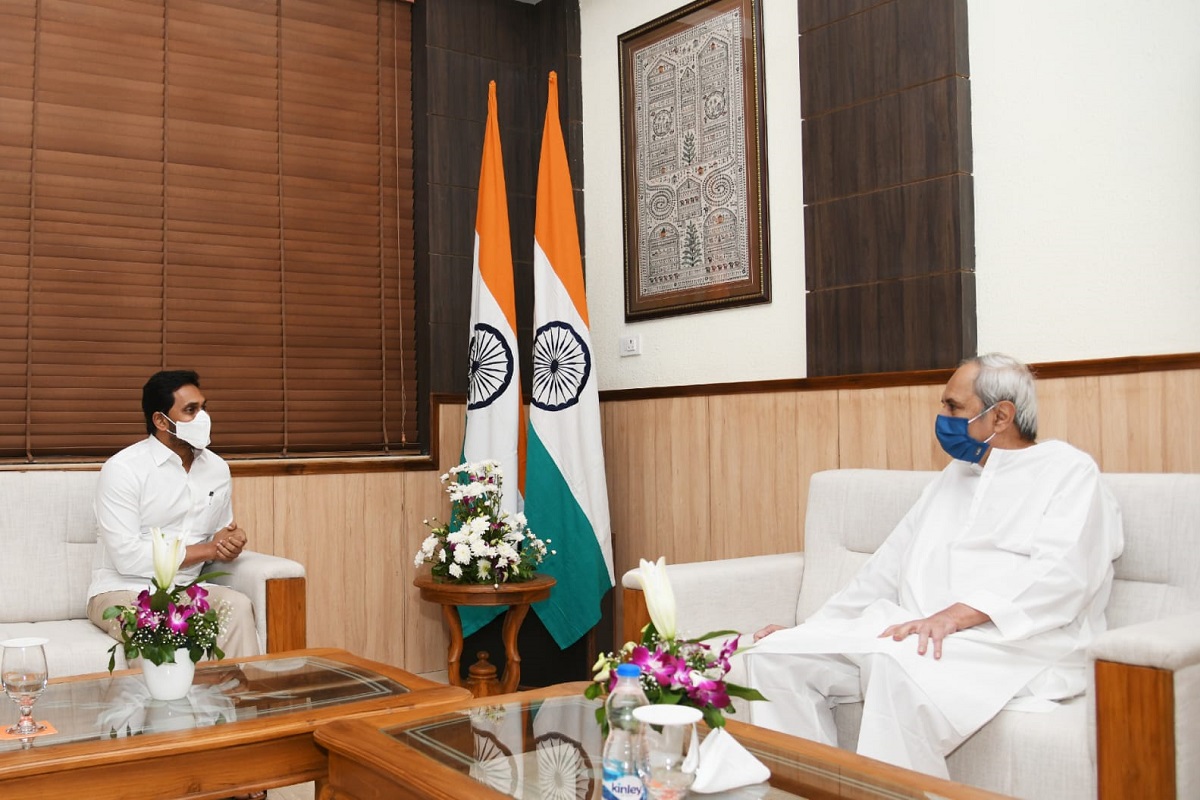Several MoUs signed during Singapore president visit to Odisha
The South East Asian country inked MoUs for collaboration in semiconductor, petrochemical, and other sectors.
Not wholly unrelated to the overall dispute is the extremist challenge, so to speak.

The primary significance of the meeting between the Chief Ministers of Odisha and Andhra Pradesh in Bhubaneswar this week was the essay towards inter-state cooperation on prickly issues, indeed an initiative that many states would be proud of but few are in a position to claim.
The meeting between YS Jagan Mohan Reddy and Naveen Patnaik was an effort to find a formula to resolve the border and water disputes between the two adjacent states.
Advertisement
Neither of the two Chief Ministers raised the issue of Left radicals who have posed a challenge to the two states for as long as they have. Mr Patnaik was riveted to evolving a solution to the dispute over the Kotia gram panchayat in Koraput district.
Advertisement
At another remove, Andhra Pradesh is anxious to resolve the row over various dam projects, notably the Vamsadhara (phase two) in Srikakulam district. Andhra Pradesh requires 106 acres of land in Odisha to complete the project.
It is a measure of the persistent controversy that both states have moved the Supreme Court to find a solution to the border dispute. But the issue festers though Mr Reddy’s administration is hopeful of finding a solution. Of course the Andhra Pradesh government is seemingly more interested in finding a solution to the dispute over the dam project.
But the two states did raise the Kotia panchayat issue. The Bhubaneswar meetings were held in the wake of repeated intrusions by Andhra Pradesh government officials into villages on the periphery of Odisha. Such “intrusions” have served to make confusion worse confounded.
Despite objections raised by the administration in Bhubaneswar, Andhra Pradesh was able to hold panchayat elections in as many as seven villages of Kotla gram panchayat.
This is said to reflect the expansion policy of Andhra Pradesh in the aftermath of the bifurcation of the state into Andhra and Telangana. But it would be an exaggeration to suggest in the manner of a former MP from Koraput that a “systematic plan has been adopted by the Andhra government to grab the villages of Odisha.”
This is a rather off-the-cuff observation that can only widen the inter-state rift when the effort should be towards reconciliation and a solution, as was attempted this week. Not wholly unrelated to the overall dispute is the extremist challenge, so to speak.
Both Odisha and especially Andhra Pradesh have on occasion gone on overdrive to rein in the Naxalites in the red zone, which incidentally straddles West Bengal, Bihar, Chhattisgarh and Maharashtra with varying degrees of intensity. It is a forbidding challenge and a coordinated effort towards a solution is direly imperative.
For every Naxalite killed, two are born. This is the truism that resonates in the affected states ever since the uprising in Naxalbari in 1967 though it must be conceded that Bengal is somewhat less affected than the rest in the Left radical loop.
Advertisement